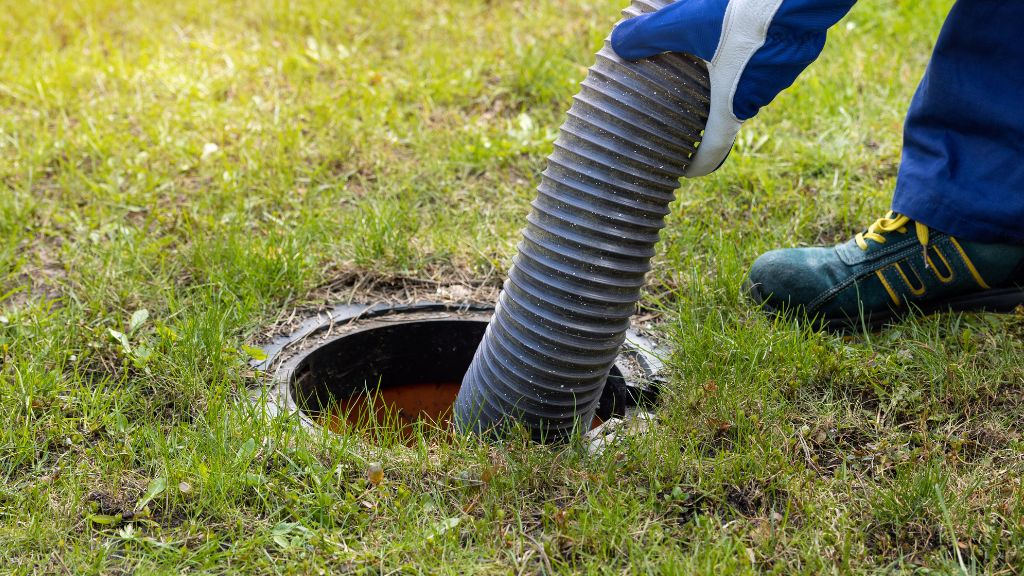
There’s a lot to appreciate about an older home — classic architecture, unique designs, and a sense of history. However, with the beauty of age often comes responsibility, particularly when it comes to your septic system.
If your septic system has been serving your household for decades, taking proactive steps to maintain it can help you avoid costly repairs and extend its lifespan. Here are some
essential practices to ensure your older septic system stays in good working condition for years to come.
1. Perform Maintenance Inspections
Older septic systems require more frequent inspections to catch potential problems early. Schedule a
professional maintenance inspection at least once every 1-2 years.
During these inspections, a septic professional will check for signs of wear, leaks, and any other issues that may arise as your system ages. This preventive measure can help you address minor issues before they turn into major, costly repairs.
2. Pump Your Tank Regularly
One of the most important aspects of maintaining any septic system, especially an older one, is to regularly
pump out your tank. Over time, solid waste builds up in the septic tank, reducing its capacity and leading to potential backups.
Have the tank pumped every 3-4 years, depending on the tank's size and the number of household occupants. Regular pumping prevents sludge buildup, which can extend the life of your septic system.
3. Conserve Water
Older septic systems may not be as efficient as newer models when it comes to handling large volumes of water.
Conserve water to reduce the strain on your system.
Simple changes like fixing leaky faucets, installing low-flow toilets and showerheads, and spreading out laundry loads can make a big difference. The less water your septic system has to process, the better it will perform over time.
4. Mind What You Flush
Your septic system is designed only to handle human waste and toilet paper — nothing more.
Avoid flushing items like wipes (even if they're labeled "flushable"), feminine hygiene products, paper towels, and other non-biodegradable items.
These can clog your system and lead to costly repairs. Encourage and remind everyone in your household to be mindful of what they flush to prevent unnecessary strain on your septic system.
5. Protect Your Drainfield
The drainfield is a critical part of your septic system, and it's especially vulnerable in older setups. To
maintain your drainfield and protect it from damage:
- Avoid placing heavy objects or parking vehicles on the drainfield, as the weight can compact the soil and damage the pipes.
- Be cautious about planting trees or shrubs too close to the drainfield, as their roots can invade and clog the pipes.
- Keep the area clear to ensure proper drainage and system function.
6. Use Septic-Safe Products
As your septic system ages, it becomes even more important to use products that won't disrupt your tank's natural balance of bacteria. Harsh chemicals, such as bleach and strong household cleaners, can kill the beneficial bacteria that break down waste.
Switch to septic-safe cleaning products and avoid using too much antibacterial soap. By maintaining a healthy bacterial balance in the tank, you can keep your system running smoothly.
7. Be Cautious with Additives
While there are many
septic system additives on the market, not all of them are beneficial — especially for older systems. Some additives can disrupt the natural processes within your tank or even damage your system over time.
8. Watch for Warning Signs
Older systems may be more prone to issues like slow drains, unpleasant odors, or pooling water in your yard. If you notice any of these
warning signs, don't ignore them.
Addressing septic problems early can prevent more extensive damage and costly repairs down the line. Contact a septic professional immediately if you suspect something is wrong with your system.
9. Be Aware of Your System's Age and Condition
Understanding the age and condition of your septic system is crucial for planning future maintenance and potential upgrades. The average lifespan of a septic system is around 25 to 30 years, but with diligent care, some systems can last 50 years or more.
However, even the most well-maintained system will eventually reach the end of its lifespan. By staying informed about the state of your septic system, you can avoid unexpected failures and ensure that your system continues to serve your home effectively.
Protecting Your Septic System Well into the Future
Maintaining an older septic system requires diligence and care, but the effort is well worth it. Follow these tips to help extend the life of your system, prevent expensive repairs, and enjoy the peace of mind that comes with a well-functioning septic system. A little maintenance today can save you headaches (and money) in the future.